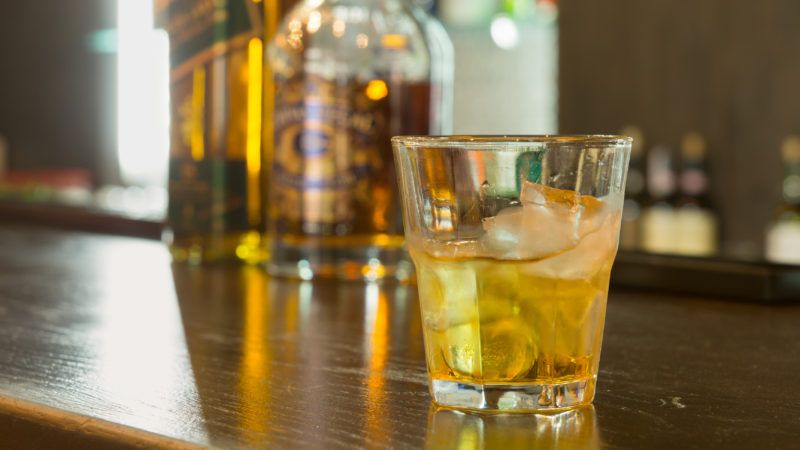American Tariffs Are Bad for Booze. European Tariffs Would Be a Disaster.
The E.U. is considering levying $4 billion in new tariffs on American goods, with alcohol likely to be one of the targets.

American distillers have already taken heavy collateral damage in a trade spat over airplane manufacturing subsidies—and now things could be taking a turn for the worse.
If the European Union (E.U.) follows through on a threat to impose $4 billion in new tariffs against American-made goods, booze is likely to be one of the major targets. Earlier this month, arbitrators at the World Trade Organization (WTO) granted permission for the E.U. to impose those tariffs in retaliation for more than $7 billion in new tariffs levied by the Trump administration on European imports in October of last year—those 25 percent levies targeted "cultural goods" including Scotch whisky, Italian pasta, and German ham.
If Europe decides to retaliate, it would represent another major escalation in a years-long dispute over how governments on both sides of the Atlantic subsidize the manufacturing of airplanes—a conflict that has already done significant damage to unrelated industries, like the production of alcoholic beverages.
According to trade data tracked by the Distilled Spirits Council of the United States, an industry group, American whiskey exports to European countries declined by 41 percent from August 2019 through July 2020. That decline represents more than $300 million in lost sales to the largest export market for American whiskey.
The fact that tariffs on imported booze could have damaged American exports of the same products might come as something of a surprise. If tariffs worked the way President Donald Trump and his top trade advisors believe they do, then American distillers should have benefitted from being protected against foreign competition.
But, in fact, exports are often unintended victims of protectionist trade policies. The 25 percent tariffs against Scotch whisky, for example, have caused imports to fall by about 35 percent since last year, according to the Distilled Spirits Council's data. That means Americans are importing less whisky from Europe, so Scotch-makers are having to sell more of their product closer to home, thus slackening demand for American-made booze overseas.
Practically, it means that some American distillers are being shut out of the European market and some European producers are now postponing or canceling plans to sell to Americans. On both sides of the Atlantic, the result is less choice for consumers and fewer sales opportunities for producers.
In short, it's impossible to raise a trade barrier that only works in one direction.
The same thing has happened with the more well-known aspects of Trump's trade war. "A tax on imports is a tax on exports," writes C. Fred Bergstein, a senior researcher for the Peterson Institute for International Economics, a trade-focused think tank. That "tax" can take many different forms. Artificially inflating the cost of imports can hike production costs for goods that will eventually be exported, for example, or it can shift foreign demand in ways that rebound to the disadvantage of domestic producers, as in the case of the whisky tariffs.
More tariffs will only make things worse.
"The escalation of tariffs on the distilled spirits and wine sectors, by either the U.S. or E.U., will only increase harm to an industry already suffering," a group of 18 trade associations representing American and European alcohol and hospitality industries wrote earlier this month in a joint letter to the United States Trade Representative and the European Commission for Trade. Those industries are already facing "incredible economic harm due to the mandatory closings of restaurants, bars, and distillery and winery tasting rooms in response to the outbreak of COVID-19."
The groups are urging both the U.S. and E.U. to drop tariffs on booze. Until that happens, whiskey businesses on both sides of the Atlantic will continue to be on the rocks.


Show Comments (60)